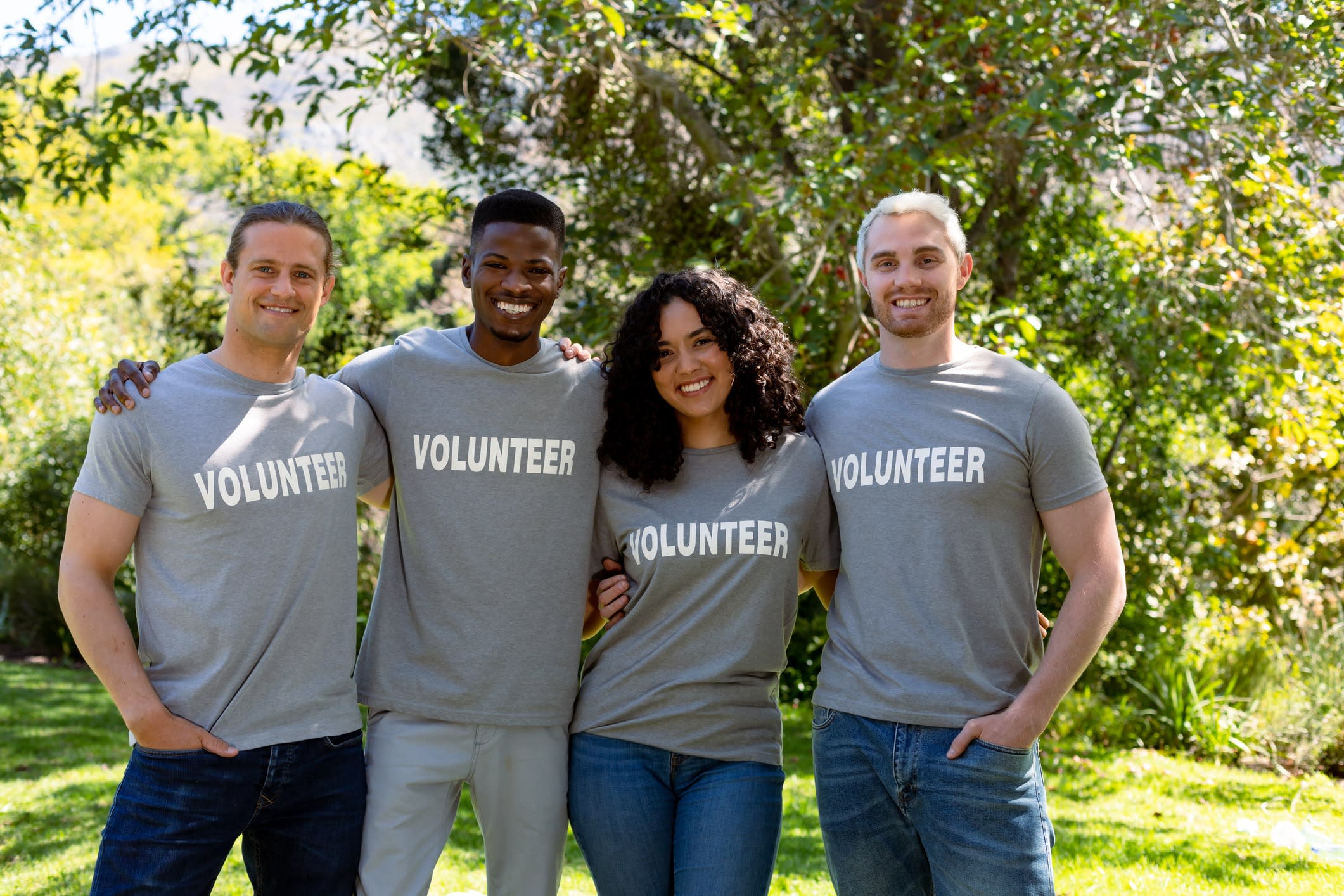
Bridging Worlds, Building Futures: The Transformative Power of Volunteering on Native American Reservations
In the heart of America’s vast and varied landscapes lie sovereign nations with rich histories, vibrant cultures, and unique challenges. Native American reservations, often misunderstood or overlooked by mainstream society, are dynamic communities striving for self-determination, cultural preservation, and sustainable development. For those seeking a volunteer experience that transcends typical tourism, offering profound cultural immersion and opportunities for genuine impact, these reservations present a compelling and often deeply transformative path.
Volunteering on a Native American reservation is not merely about offering time; it is about building relationships, fostering understanding, and contributing to a legacy of resilience. It demands respect, humility, and a willingness to learn, offering in return an unparalleled insight into Indigenous cultures and the complex realities of contemporary Native life.
The Landscape of Need and Opportunity
The legacy of colonialism, forced relocation, and broken treaties has left many Native American communities grappling with significant socio-economic disparities. According to the Bureau of Indian Affairs, as of 2023, there are 574 federally recognized Native American tribes, each with its own distinct governance, language, and customs. While many tribes have achieved remarkable economic success, others continue to face substantial hurdles, including high rates of poverty, unemployment, inadequate housing, limited access to healthcare, and educational gaps.
These challenges, however, are met with an unwavering spirit of self-reliance and cultural pride. This is where thoughtful, respectful volunteerism can play a crucial role, not as a replacement for tribal initiatives, but as a supplementary force that supports community-driven goals.

"Our communities are incredibly resilient, but resources are often scarce," explains Sarah Nez, a Navajo elder involved in community outreach. "When volunteers come with open hearts and a willingness to listen and learn, they can fill critical gaps and help us strengthen our programs. It’s about partnership, not charity."
Volunteer opportunities on reservations span a wide array of sectors, reflecting the diverse needs and priorities of individual tribes:
-
Education and Youth Development: Many reservations struggle with teacher shortages, underfunded schools, and limited access to educational resources. Volunteers can assist in classrooms as tutors, mentors, or after-school program facilitators. They might help develop STEM programs, assist with literacy initiatives, or coach youth sports. The goal is often to provide additional support that reinforces academic achievement and cultural identity. For instance, programs like the American Indian Institute’s Summer Youth Program often seek volunteers to help facilitate workshops and cultural activities.
-
Healthcare and Wellness: Access to quality healthcare remains a significant issue in many remote reservation communities. Volunteers with medical backgrounds – doctors, nurses, dentists, and public health specialists – are invaluable. They can assist in clinics, participate in health fairs, provide screenings, or educate on preventative care and chronic disease management. Even non-medical volunteers can support administrative tasks, organize wellness events, or assist with elder care programs. The Indian Health Service (IHS), while primarily federally funded, often partners with non-profits that utilize volunteers to extend their reach.
-
Environmental Stewardship and Conservation: Native American tribes are often at the forefront of environmental protection, drawing on ancestral knowledge of land and resource management. Volunteers can assist with a variety of projects, from restoring natural habitats, managing invasive species, and developing sustainable agriculture practices, to monitoring wildlife and supporting renewable energy initiatives. The protection of sacred lands and traditional food systems is a critical aspect of this work. Organizations like the Native American Fish and Wildlife Society (NAFWS) occasionally coordinate volunteer efforts for habitat restoration or research projects.
-
Cultural Preservation and Language Revitalization: Perhaps one of the most unique and vital areas for volunteering is in cultural and language preservation. Centuries of assimilation policies have led to a decline in the number of fluent speakers of Indigenous languages. Volunteers can assist in archiving oral histories, transcribing traditional stories, developing language learning materials, or supporting cultural centers and museums. This work is profoundly impactful, helping to ensure that the rich heritage of Native peoples continues for future generations. "Our language is our identity," states Dr. Leilani Standing Bear, a Lakota linguist. "Volunteers who help us document and teach our language are helping us keep our soul alive."
-
Community Development and Infrastructure: Volunteers can contribute to tangible community improvements, such as building or repairing homes, community centers, or playgrounds. They might assist with grant writing, economic development projects, or establishing small businesses. Skills in construction, project management, and business development are highly valued. Organizations like Rebuilding Together often have affiliates that work with tribal communities on housing initiatives.

The Ethos of Respectful Engagement
Volunteering on a reservation is distinct from other service opportunities. It requires an acute awareness of cultural protocols, historical context, and tribal sovereignty. The "savior complex" – the belief that one is arriving to rescue a community – is not only unhelpful but can be deeply offensive. Instead, volunteers are encouraged to approach the experience with humility, a willingness to learn, and a commitment to genuine partnership.
Key Principles for Ethical Volunteering:
- Listen More Than You Speak: Prioritize understanding the community’s needs and aspirations as defined by the community itself.
- Respect Tribal Sovereignty: Recognize that reservations are self-governing nations with their own laws, customs, and decision-making processes. Adhere to all tribal directives.
- Cultural Sensitivity: Educate yourself on the specific tribe’s history, traditions, and social norms. Be mindful of sacred sites, ceremonies, and traditional practices. What might be acceptable in one culture may not be in another.
- Long-Term Commitment (or Thoughtful Short-Term): While short-term opportunities exist, deeper impact often comes from sustained engagement. If short-term, ensure your contribution is well-defined and truly meets an immediate, identified need without creating dependency.
- Avoid "Voluntourism" Pitfalls: Be wary of programs that prioritize the volunteer’s experience over genuine community benefit. Research organizations thoroughly to ensure they are community-led and ethically sound.
- Build Relationships: The most rewarding experiences often stem from the human connections forged. Be open to forming genuine friendships and understanding diverse perspectives.
Finding Legitimate Opportunities
Identifying reputable volunteer programs requires due diligence. Direct unsolicited approaches to tribal governments are generally not recommended, as they can be overwhelmed with requests and may not have established volunteer programs. Instead, focus on established organizations with long-standing relationships with specific tribes:
- Reputable Non-Profits: Organizations like Cultural Vistas, Native American Heritage Fund, Association on American Indian Affairs, or smaller, specialized groups often facilitate volunteer placements. Look for organizations that emphasize community-driven projects and cultural education.
- University Programs: Many universities have outreach programs or partnerships with tribal colleges and communities, offering structured volunteer or internship opportunities.
- Online Platforms (with caution): Websites like Idealist.org or VolunteerMatch.org can list opportunities, but it’s crucial to thoroughly vet the organizations. Look for clear project descriptions, transparent funding, and testimonials from past volunteers and community members.
- Tribal Colleges and Universities: These institutions often have direct connections to community needs and may be able to guide volunteers to appropriate opportunities, especially for academic or research-focused projects.
Before committing, ask critical questions: Who identified the need for this project? How will my skills be utilized? What cultural orientation is provided? How does the organization ensure its work is sustainable and respectful of tribal sovereignty?
The Transformative Journey
For the volunteer, the experience can be profoundly transformative. It challenges preconceived notions, expands worldviews, and fosters a deeper appreciation for cultural diversity and human resilience. Volunteers often speak of gaining new skills, a stronger sense of purpose, and friendships that last a lifetime.
"I went to help, but I ended up learning so much more than I gave," recounts Emily Chang, a former volunteer on the Pine Ridge Reservation who assisted with an after-school program. "The sense of community, the connection to the land, the strength of the people – it changed my perspective on everything. It wasn’t just service; it was a life lesson."
Volunteering on a Native American reservation is an invitation to step beyond the familiar and engage with communities on their terms. It is an opportunity to contribute meaningfully to efforts of self-determination, to witness the enduring power of culture, and to build bridges of understanding that span divides. For those willing to approach the experience with respect, humility, and an open heart, the journey offers not just a chance to serve, but a profound opportunity for personal growth and a deeper connection to the rich tapestry of the American story.

